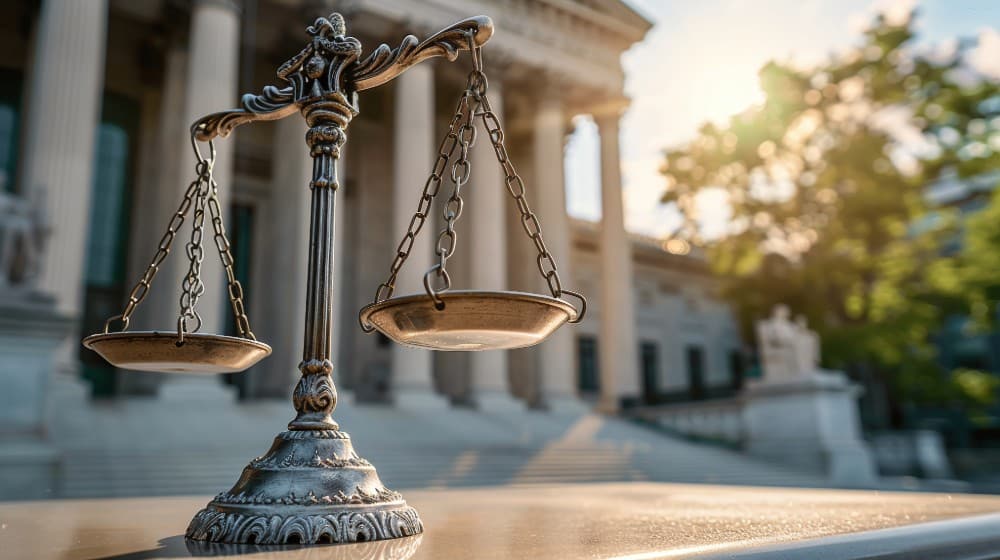Facing Child Pornography Charges in Augusta, Maine? Get Trusted Legal Help Now
Being accused of possessing, distributing, or accessing child pornography is a serious criminal matter that can have life-changing consequences. In Augusta, child pornography charges are prosecuted harshly under both Maine and federal law, often resulting in prison time, sex offender registration, and lasting damage to your reputation and future.
If you are under investigation or have already been charged, you need an experienced criminal defense attorney in Augusta who can act quickly to protect your rights. At The Maine Criminal Defense Group, we understand how to challenge digital evidence, expose flaws in law enforcement procedures, and build a powerful legal defense on your behalf.
Contact us today for a confidential consultation with a trusted defense lawyer near you.
Call 207-571-8146 or contact us online to schedule a consult with one of our highly skilled criminal defense & OUI lawyers, serving Southern Maine, today.
Table of Contents
How Child Pornography Is Classified Under Maine Law
Child pornography laws in Maine are broad and complex, making it critical to understand how different types of content are classified—especially when defending against serious charges. These classifications often guide the severity of the charges and penalties you may face.
The following categories represent escalating levels of severity in child pornography cases:
- Erotic Posing: Sexually suggestive images of minors, even when clothed or partially clothed, posed in a deliberately provocative manner.
- Explicit Erotic Posing: Depictions that emphasize the genital area of a child in an erotic context, whether clothed or nude.
- Explicit Sexual Activity: Visual material showing minors engaged in sexual acts, either alone or with other children, without the presence of an adult.
- Assault: Depictions of a child being sexually assaulted by an adult.
- Gross Sexual Assault: Content involving children participating in or being subjected to highly graphic or extreme sexual acts with adults.
- Sadistic or Violent Content: Images or videos where a child is shown being harmed, tortured, or raped in a sexualized context.
Each classification carries severe legal consequences under both state and federal law. If you’re facing any of these allegations in Augusta, it’s critical to speak with a child pornography defense lawyer near you who understands the nuances of digital evidence and criminal procedure.
At The Maine Criminal Defense Group, we provide experienced, non-judgmental legal support to protect your rights and build a strong, strategic defense.
Penalties for a Child Pornography Conviction in Augusta, Maine
If found guilty of possessing and/or viewing child pornography, an individual will be required to register in the sex offender database. This means that they will have to continually update their information when they choose to move, maintain employment, or attend school in another jurisdiction.
This information will be viewable by the public, including what charges a person was convicted of. A person found guilty of this crime may also be subject to federal and/or state charges.
According to Maine Code §284, being in possession of any sexually explicit material that involves a minor less than 16 years of age would result in a class D crime in the state of Maine. A class D offense is punishable by up to 1 year in jail and a $2,000 fine.
If found in possession of child pornography where the minor is less than 12 years old, an individual would be charged with a class C crime-resulting in up to 5 years in jail and a $5,000 fine.
If an offender has had one or more prior convictions, the severity of the crime, and the resulting penalties, will be increased as well.
Call 207-571-8146 or contact us online to schedule a consult with one of our highly skilled criminal defense & OUI lawyers, serving Southern Maine, today.
What Behaviors Fall into the Classification of “Child Pornography” in Maine Law?
As mentioned, child pornography in the State of Maine is a relatively expansive concept, and includes a range of behaviors and actions. The following behaviors are presently recognized as being included within the definition of child pornography:
- Any sort of erotic posing, whether fully clothed or partially nude, which essentially means any sexualized depictions of minor children;
- Explicit erotic posing, which refers to any depiction which highlights or focuses on the genital area, and this can be either fully clothed or nude;
- Explicit sexual conduct, which means any material (i.e. images or film) which depicts minor children engaging in sex acts either together or alone;
- Any material which depicts sexual assault of minors by an adult;
- Any material which depicts minor children engaging in obscene sexual acts with an adult;
- Any material which depicts any form of sadistic sexual acts involving minors and adults (i.e. physical torture, pain, etc.).
How are Child Pornography Crimes Assessed in Augusta, Maine?
In Maine, child pornography charges are assessed based on the type of conduct involved and the specific details of the alleged offense. These classifications determine the severity of the charges and the potential penalties you may face under state law. Some offenses carry mandatory prison time and sex offender registration—even for first-time offenders.
Below is an overview of how these crimes are categorized:
Production of Child Pornography (Sexual Exploitation of a Minor)
The production of child pornography is typically a Class B felony, but it becomes a Class A felony if:
- The alleged victim is under the age of 12, or
- The defendant has a prior conviction for a similar offense.
Class A crimes carry the harshest penalties under Maine law.
Distribution of Child Pornography
This offense is usually a Class C felony, but can be upgraded based on certain factors:
- If the material depicts a child under 12 years old, the charge may be elevated to a Class A felony.
- If the defendant has prior convictions, the charge becomes a Class B felony.
Possession of Child Pornography
Possession is generally treated as a Class C felony, regardless of:
- The age of the minor depicted (even if under 12), or
- Any prior convictions on the defendant’s record.
In limited cases, a legal defense may apply—for example, if the person depicted was the defendant’s legal spouse at the time of the image and the marriage was valid under Maine law.
Each case is unique, and how your charges are assessed can significantly affect your defense strategy. If you’re facing these accusations in Augusta or the surrounding area, it’s essential to consult with a criminal defense lawyer near you who understands how to challenge the prosecution’s evidence and fight for the best possible outcome.
The Maine Criminal Defense Group has the experience and resources to protect your rights and aggressively defend against serious sex crime charges in Maine courts.
Call 207-571-8146 or contact us online to schedule a consult with one of our highly skilled criminal defense & OUI lawyers, serving Southern Maine, today.
How is “Intent” Established Regarding the Distribution of Child Pornography in Maine?
The crime of distribution of child pornography (or “dissemination of sexually explicit material” involving minors, as it’s alternatively referred to) can be defined as follows under Maine law: intentionally or knowingly disseminating, or possessing with the intent to disseminate, any material which depicts a minor engaging in sexually explicit conduct. In this definition, we can see that “intent” is a key element of this crime. Under current Maine law, the element of intent will be evidenced by way of “permissible inference” whenever a person possesses 10 or more copies of material featuring child pornography.
In other words, if a person possesses 10 or more pieces of child pornography, Maine law will presume that the intent to disseminate exists. Intent can also be evidenced in other ways, but intent will always be inferred whenever this amount of material is discovered.
Do Child Pornography Offenders in Maine Have to Register as Sex Offenders?
Yes, under current Maine law, child pornography offenses – i.e. production, possession, or distribution – are considered sex crimes, and so offenders are obligated to register as sex offenders. Offenders must register with the Maine Sex Offender Registry, which is operated by the Maine State Bureau of Identification.
Offenders register by delivering certain information to this bureau, and then maintain the accuracy of their profile by updating their information periodically. Offenders must maintain their profile, otherwise they can face harsh consequences.
What Data Must Be Provided to Register with the Maine Sex Offender Registry?
During the initial registration process, the convicted sex offender is required to provide certain information to the Maine Sex Offender Registry. As mentioned, this information must be updated periodically in order to maintain accuracy. The information which must be initially provided to the registry includes the following: the offender’s name, any aliases used, date of birth, identifying traits (i.e. eye color, hair color, height, weight, race, gender, etc.), recent picture, fingerprints, future address where the offender plans to live, details on the conviction itself, details on the offender’s mental health status.
How Does Maine’s Mandated Reporter Law Operate with Respect to Child Pornography?
Under Title 22, Section 4011-A of the Maine Health and Welfare Code, certain individuals are required by law to report suspected instances of child abuse or neglect to the authorities. Clearly instances involving child pornography would certainly fall into this category, and so suspected instances involving child pornography must be reported.
At this time, under current law, this mandated reporting requirement applies to most licensed caregivers, teachers, religious workers, and first responders.
In addition, there is a subsection within Section 4011-A which requires reporting whenever someone suspects that a minor child isn’t living with his or her legal guardian. This subsection is often viewed as a special provision to prevent child pornography, as many instances of child pornography occur when a minor child has been abducted.
Is “Illegal Search and Seizure” a Possible Defense Against Child Pornography Allegations?
The short answer to this question is “yes,” a defense attorney may attempt to overcome a child pornography related charge by raising this type of argument. Under the U.S. Constitution, citizens are protected from illegal searches and seizures from authority figures; violations of this constitutional protection can lead to suppression of evidence, and this suppression of evidence can potentially defeat a criminal charge.
In some ways, this is an evolving area of law, because there is some uncertainty regarding how these constitutional rights apply to digital searches of computer files. As with every possible defense, the viability of this argument ultimately depends on the exact facts involved, and so there is no way to predetermine how viable this defense may be.
Call 207-571-8146 or contact us online to schedule a consult with one of our highly skilled criminal defense & OUI lawyers, serving Southern Maine, today.
Can Evidence Obtained from an In-Person Interrogation Be Suppressed via Court Motion?
Again, as with the previous question, the short answer to this question is “yes.” If an alleged offender gives evidence to police officers during an initial interrogation, this evidence may be inadmissible depending on the circumstances. If the evidence is inadmissible, then it can be formally suppressed by filing a court motion.
In most instances in which someone is charged with a child pornography related crime, the alleged perpetrator submits to an initial interrogation by the police. Our counsel is always to avoid submitting to an interrogation, but if an interrogation does occur, there is still the possibility of having any negative evidence suppressed if the interrogation procedure was defective (i.e. not voluntarily given, no Miranda rights, etc.).
Is the Location of Computer Files Relevant in Building a Defense to Allegations?
Yes, the location of files is relevant in building a case against child pornography charges, which is why a skilled attorney will make pointed inquiries regarding the exact location of files. Depending on the location of the files, a greater or lesser technological defense may be built against charges.
For instance, were the images thumbnails? Did more than one individual have access to the searched computer? Where exactly were the images stored within the computer? These questions may be used to potentially build a defense to a charge.
Potential Jail Sentence for Possession of Child Pornography in Maine
In the State of Maine, under Maine Code §284, the crime of possession of child pornography is a Class C offense, and Class C offenses carry a maximum jail sentence of 5 years. Depending on the exact nature of the offense and the perpetrator’s criminal history, the offender may receive a sentence closer or farther from the maximum possible sentence.
Contact our Augusta Child Pornography Defense Lawyers
Maine treats child pornography charges with the utmost severity due to the serious impact these offenses have on victims and the broader community. Courts in Augusta and throughout the state often impose harsh penalties—including lengthy prison sentences, mandatory sex offender registration, and a permanent criminal record.
If you’ve been accused or charged with possessing, distributing, or producing child pornography in Augusta, it’s critical to act fast. The consequences are too serious to face alone. You need a defense team that understands how to challenge digital evidence, uncover flaws in the prosecution’s case, and advocate aggressively for your rights in court.
At The Maine Criminal Defense Group, we provide experienced, discreet, and strategic legal representation to clients across the Augusta area. Whether you’re under investigation or already facing charges, our criminal defense attorneys are here to protect your future. Call us today or contact us online to schedule a confidential consultation with a trusted criminal defense lawyer near you.
Call 207-571-8146 or contact us online to schedule a consult with one of our highly skilled criminal defense & OUI lawyers, serving Southern Maine, today.
Blog Articles

Sexual exploitation of a minor is a severe offense in Maine with life-altering consequences. This crime involves persuading or enticing a minor into sexual acts, often aggravated by technology or[...]

Many individuals accused of sexual assault find themselves tried in the “court of public opinion” and immediately branded as “guilty.” This is unfair and contrary to the principles of criminal[...]
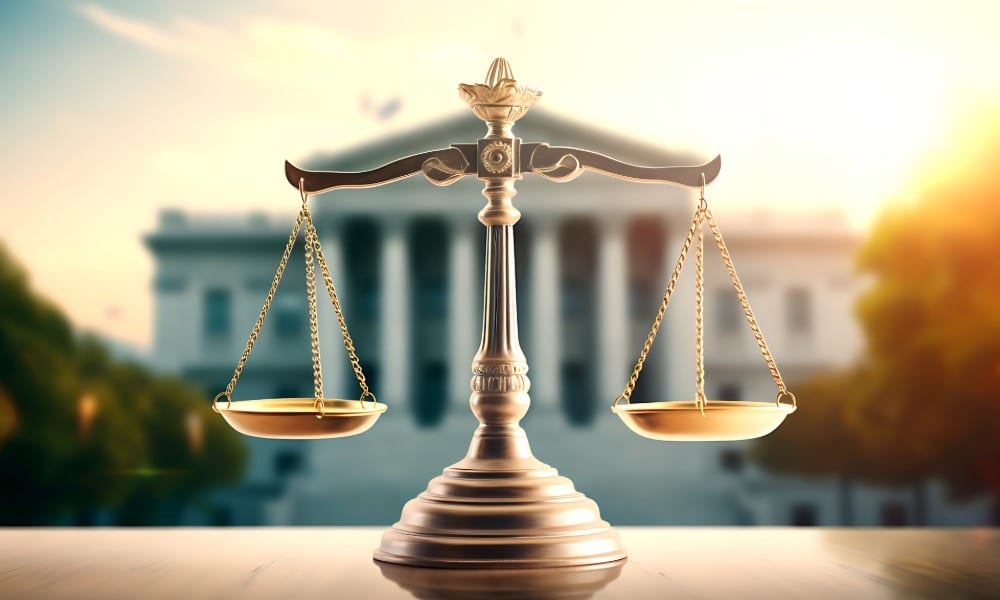
Facing a child pornography charge is one of the most daunting and life-altering experiences anyone can endure. These charges carry severe consequences, including potential prison time, hefty fines, and mandatory[...]

Solicitation of a minor is a criminal offense where an individual who engages in a conversation with a minor solicits or asks the minor to meet up to partake in[...]

Sexual assault and sexual battery both refer to criminal offenses where a victim does not provide consent to sexual contact. This contact may or may not involve penetration, force, violence,[...]

Both prostitution and solicitation are considered sex crimes in Maine. Buying or selling sexual acts or sexual contact is illegal and has traditionally been considered a criminal offense for all[...]
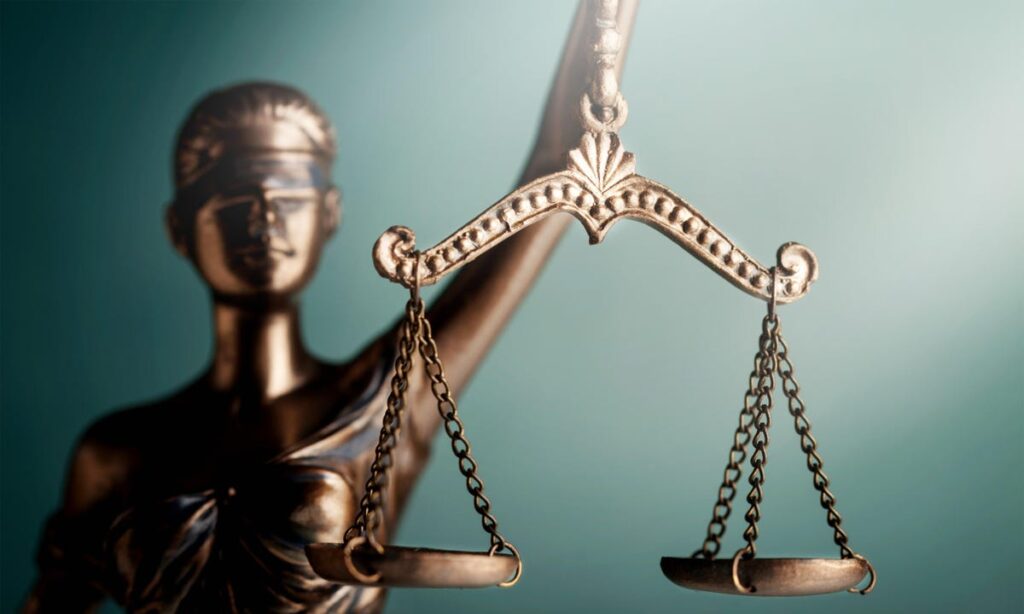
A protection from abuse order (PFA) can make it illegal for an individual to contact you or your children in the state of Maine. Filing a PFA is often a[...]

In a recent child exploitation case from Boston, a Maine man was found guilty by the federal court and sentenced to 13 years in prison and five years of supervised[...]
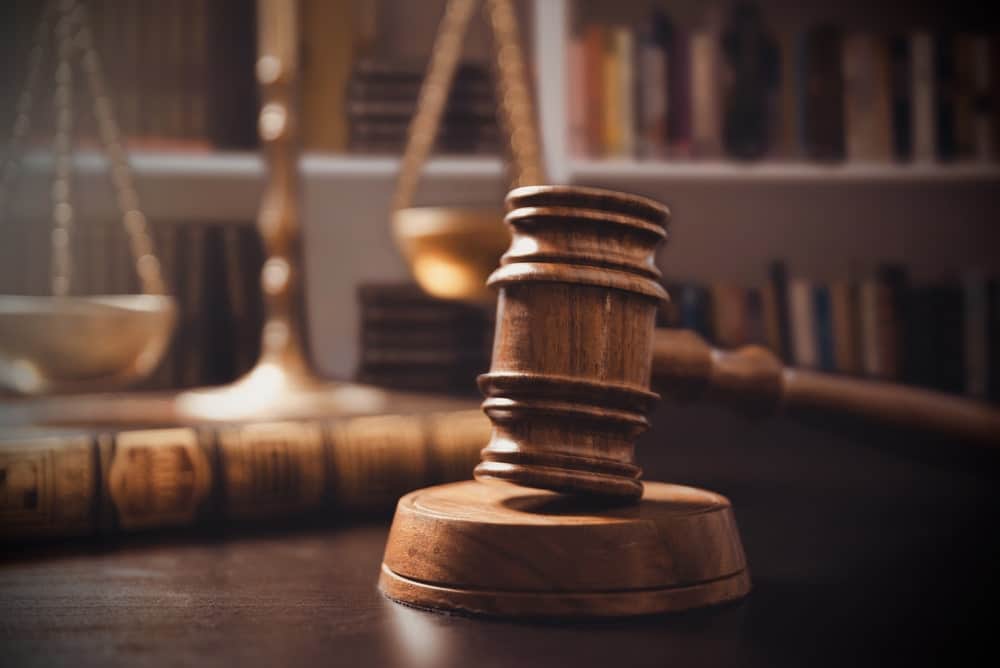
Accused or Charged with Sexual Exploitation of a Minor: What You Need to Know Allegations involving the sexual exploitation of a minor are among the most serious criminal charges a[...]
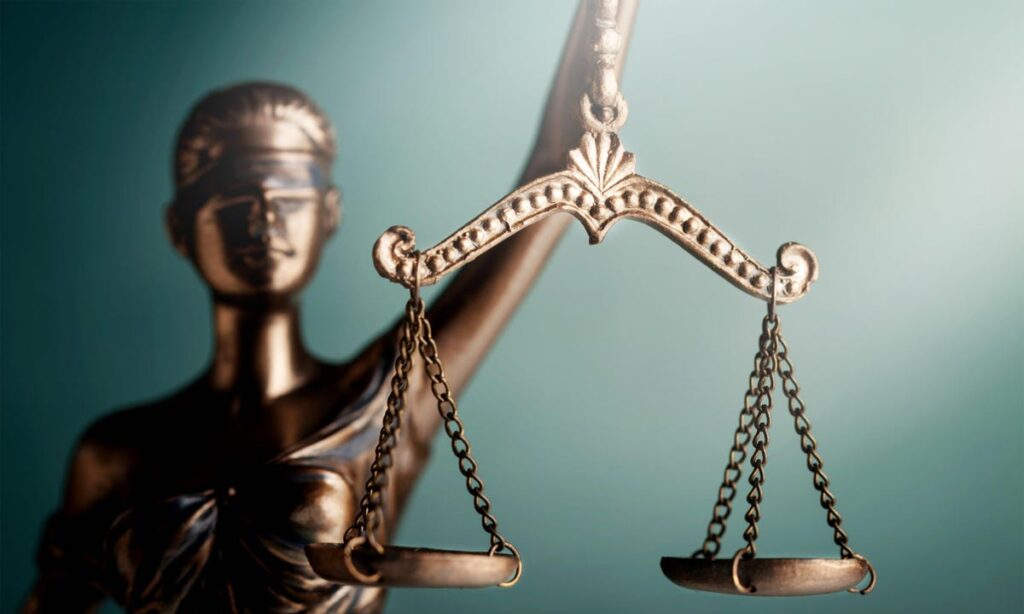
Note: We do not do any sex registry work but we do handle all sex-related cases Sex crimes are among the most destructive, antisocial behaviors in our whole society. Everyone[...]
